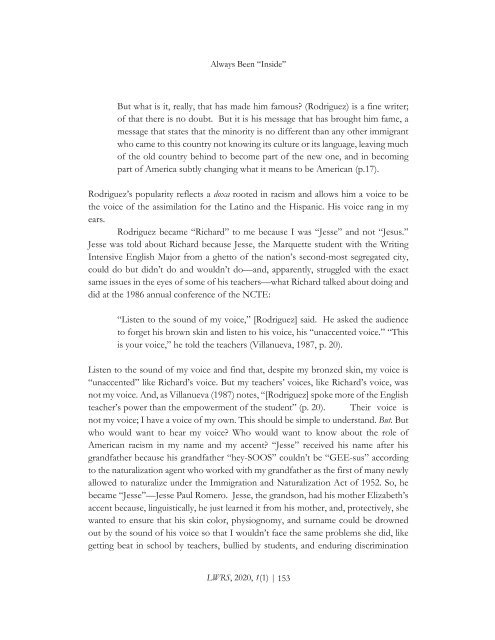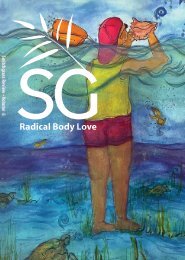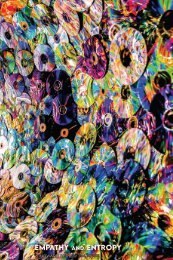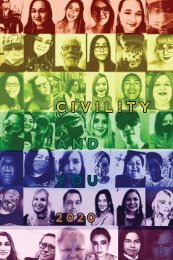LWRS June 2020 Volume 1, Issue 1
Inaugural Issue co-edited by Yndalecio Isaac Hinojosa and Isabel Baca
Inaugural Issue co-edited by Yndalecio Isaac Hinojosa and Isabel Baca
You also want an ePaper? Increase the reach of your titles
YUMPU automatically turns print PDFs into web optimized ePapers that Google loves.
Always Been “Inside”<br />
But what is it, really, that has made him famous? (Rodriguez) is a fine writer;<br />
of that there is no doubt. But it is his message that has brought him fame, a<br />
message that states that the minority is no different than any other immigrant<br />
who came to this country not knowing its culture or its language, leaving much<br />
of the old country behind to become part of the new one, and in becoming<br />
part of America subtly changing what it means to be American (p.17).<br />
Rodriguez’s popularity reflects a doxa rooted in racism and allows him a voice to be<br />
the voice of the assimilation for the Latino and the Hispanic. His voice rang in my<br />
ears.<br />
Rodriguez became “Richard” to me because I was “Jesse” and not “Jesus.”<br />
Jesse was told about Richard because Jesse, the Marquette student with the Writing<br />
Intensive English Major from a ghetto of the nation’s second-most segregated city,<br />
could do but didn’t do and wouldn’t do—and, apparently, struggled with the exact<br />
same issues in the eyes of some of his teachers—what Richard talked about doing and<br />
did at the 1986 annual conference of the NCTE:<br />
“Listen to the sound of my voice,” [Rodriguez] said. He asked the audience<br />
to forget his brown skin and listen to his voice, his “unaccented voice.” “This<br />
is your voice,” he told the teachers (Villanueva, 1987, p. 20).<br />
Listen to the sound of my voice and find that, despite my bronzed skin, my voice is<br />
“unaccented” like Richard’s voice. But my teachers’ voices, like Richard’s voice, was<br />
not my voice. And, as Villanueva (1987) notes, “[Rodriguez] spoke more of the English<br />
teacher’s power than the empowerment of the student” (p. 20). Their voice is<br />
not my voice; I have a voice of my own. This should be simple to understand. But. But<br />
who would want to hear my voice? Who would want to know about the role of<br />
American racism in my name and my accent? “Jesse” received his name after his<br />
grandfather because his grandfather “hey-SOOS” couldn’t be “GEE-sus” according<br />
to the naturalization agent who worked with my grandfather as the first of many newly<br />
allowed to naturalize under the Immigration and Naturalization Act of 1952. So, he<br />
became “Jesse”—Jesse Paul Romero. Jesse, the grandson, had his mother Elizabeth’s<br />
accent because, linguistically, he just learned it from his mother, and, protectively, she<br />
wanted to ensure that his skin color, physiognomy, and surname could be drowned<br />
out by the sound of his voice so that I wouldn’t face the same problems she did, like<br />
getting beat in school by teachers, bullied by students, and enduring discrimination<br />
<strong>LWRS</strong>, <strong>2020</strong>, 1(1) | 153





